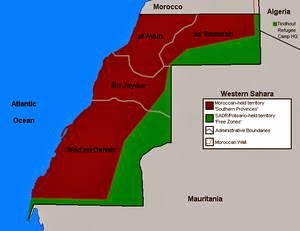EXCLUSIVE: Moroccan ex-Guantánamo Detainee Mohammed Mizouz Identified In Syria
By Aymenn Jawad Al-Tamimi So far I have identified two ex-Guantánamo detainees of Moroccan origin fighting in Syria under the banner of Harakat Sham al-Islam: namely, Abu Hamza al-Maghrebi (Mohammed al-‘Alami) and Abu Ahmad al-Muhajir (Ibrahim bin Shakaran). The latter is the leader of Harakat Sham al-Islam: a Moroccan-led mujahideen group operating primarily in Latakia and Aleppo governorates. The group recently played a role in the capture of al-Kindi hospital from regime forces alongside Jabhat al-Nusra and the Islamic Front. Figure 1: Ibrahim bin Shakaran engages in outreach to children in Latakia village of Kafr Najah. Now I have identified another Moroccan ex-Guantanamo detainee: Mohammed Mizouz, going under the alias of Abu al-Izz al-Muhajir. He appeared only many hours ago in a video where he makes a speech on the necessity for the unity of the mujahideen, appearing alongside fighters from both Islamic State of Iraq and ash-Sham and Jabhat al-Nusra in Latakia.




